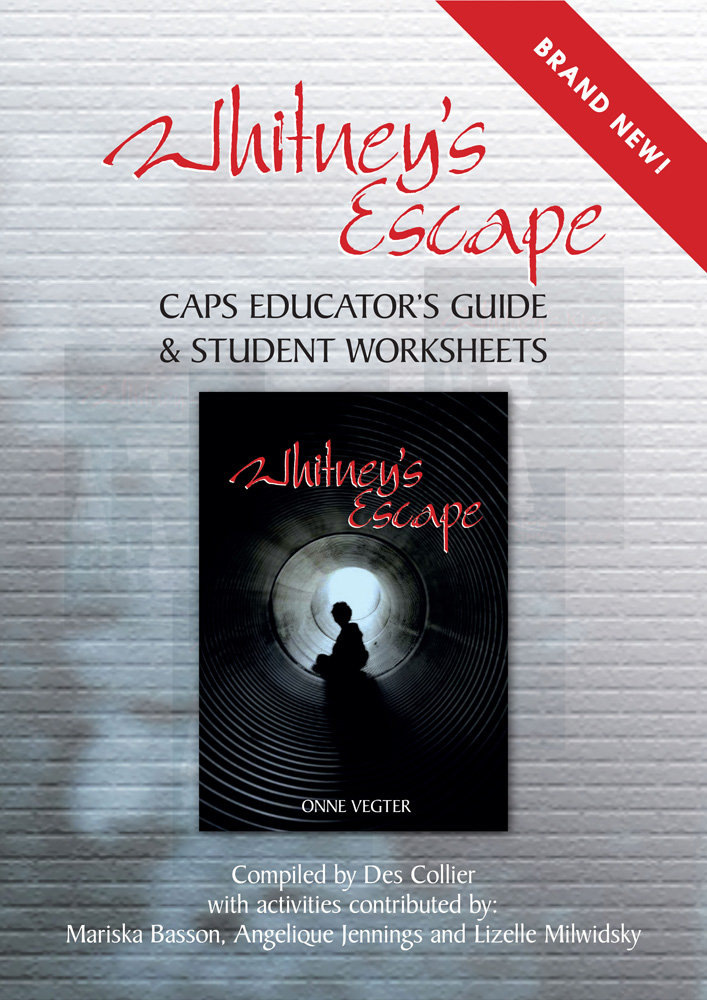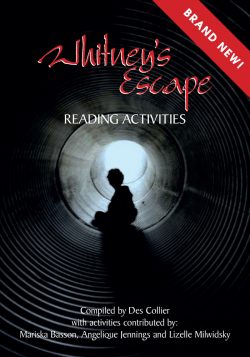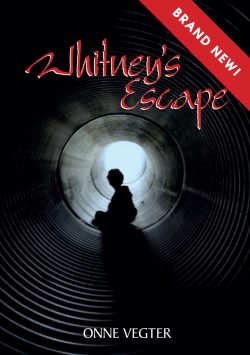Description
This Educator’s Guide accompanies the youth novel, Whitney’s Escape, published by Voices in Africa. Whitney’s Escape is a story for learners in Grade 8 with the primary aim of helping to prevent drug abuse. The book is intended for English First Additional Language Level and seeks to promote and achieve the aims of the CAPS Curriculum including:
• Whitney’s Escape is rich in dialogue and vocabulary, and can be used in a variety of ways to promote the integration of the four CAPS Skills Areas: Listen and Speak, Read and View, Write and Present and Language Use.
• The book encourages critical thinking and decision making, especially as they relate to values. This is one of the book’s main themes and is achieved through the portrayal of opposing values and behaviour patterns within the plot. Learners will find themselves having to evaluate whether or not they can agree and identify with the different characters in the book, and with opposing sides of conflicts within the plot.
• Whitney’s Escape helps the learner understand the inter-relatedness of systems and problems in the young person’s world of school, home, community and relationships. The book clearly illustrates to the learner that the problems and solutions associated with drug abuse do not exist in isolation.
• The book has a multicultural cast and seeks to promote cultural understanding and sensitivity, whilst attempting to maintain relevance and appeal to a wide spectrum of different learners from various backgrounds.
• The novel will allow educators to develop the literary themes of plot, conflict, characters and characterisation, theme and setting, role of narrator, suspense and surprise.
The novel speaks powerfully for itself and learners will easily identify with and be challenged and inspired by the characters in the book. However, your learners can also benefit much from further class discussions, activities and exercises, which will encourage critical thinking and decision-making. This Educator’s Guide is designed to help you with some ideas in this regard.
CAPS Approach and Presentation
The Reading Activities for Whitney’s Escape have been developed according to the frameworks and guidelines of the CAPS Curriculum and in particular the following prerequisite:
“All cultures, and most people, live lives imbued with stories…. Narratives (novel, short story and folklore) need to be read, discussed, and enjoyed. Whatever the teacher does in the classroom, the sheer pleasure of engaging in a good story must remain paramount.”
The teaching of literature should focus on teaching for comprehension and will include the reading process strategies (prereading, reading and postreading). The main reason for reading literature in the classroom is to develop in learners a sensitivity to a special use of language that is more refined, literary, figurative, symbolic, and deeply meaningful than much of what else they may read. While most literary texts are forms of entertainment, amusement, or revelation, serious writers create novels, plays and poems because they have ideas, thoughts and issues; principles, ideologies and beliefs that they most want to share with or reveal to their prospective readers. Their imaginative use of language is an added method of revealing, reinforcing, and highlighting their ideas.
Creative writing should be closely attached to the study of any literary text. Writing activities that demand a close understanding of the text being read can prove very helpful in reaching more creative levels of appreciation on the part of the learners.
This youth novel offers 14 – 15 year-olds the chance to embark on a journey with Whitney and her friends in using English Language to explore and develop personal identity, values and viewpoints. The reading activities will encourage them to build positive, life-affirming relationships by making constructive, edifying choices in dealing with the issues, challenges and temptations faced by youth in contemporary African society.
In using the theme approach, learners can look at themes such as values and choices, friendship, drugs, boundaries, fear, etc. and relate them to events in real life situations. They can make judgements about the characters’ actions and comment on the theme.
The following aspects are covered in Grade 8 at appropriate and progressive levels of complexity:
• The Reading Process.
• Reading Purpose.
• Elements of a Novel.
We have designed the activities to follow a general pattern, with Listening and Speaking playing a big part throughout, as follows:
• Prereading to stimulate past experience or knowledge related to the issues in the subsequent chapter, or to share any insights from Review and Reflection.
• Reading activities to check and support understanding.
• Language-in-context activities.
• Closer reading and study of the novel genre.
• Writing and presenting own response to the novel.
• Review and reflection on the issues and learning covered in the chapters.
Each learner should have a workbook as well as a journal. The workbook will be used for all activities which could be assessed. The journal is for use during Review and Reflect and is not intended for assessment. The educator has the responsibility to ensure that learners complete the tasks and should agree with the learners on what basis the journals will be viewed.





Reviews
There are no reviews yet.